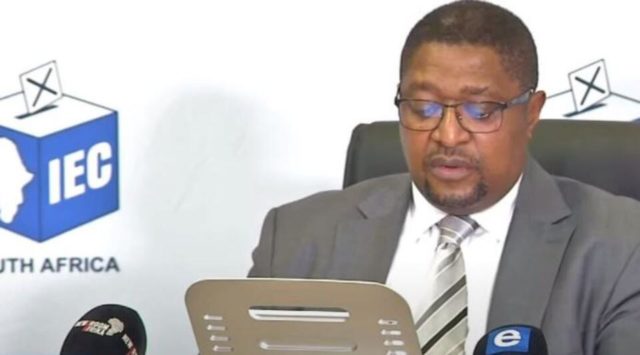The Electoral Commission of South Africa has taken a tough stance against disinformation before the upcoming local government elections, by implementing methods to track fake news on social media.
The Electoral Commission of South Africa (IEC) has taken a tough stance against disinformation before the upcoming local government elections, by implementing methods to track fake news on social media.
On Friday, chairperson Glen Mashinini said the IEC was “once again making available an innovative online reporting platform for citizens to report instances of alleged digital disinformation during the 2021 Municipal Elections”.
He was speaking at a ceremony where political parties contesting the November 1 elections signed the Electoral Code of Conduct.
Mashinini said the platform was intended for complaints related to social media only and would not replace existing channels and processes for investigating alleged breaches of the code.
He said the platform was developed alongside Media Monitoring Africa, an NGO focused on promoting independent, accurate and impartial reporting on elections.
“The platform will provide for the online submission of and tracking of complaints relating to disinformation encountered on social media platforms.”
Mashinini said the IEC was ready to deliver this election and “the train is well in full speed”.
He the chief electoral officer had certified the voters roll which contained the names of 26.2 million eligible voters.
Gauteng has the biggest representation of voters. More than 50% of registered voters are women.
Up to 63 409 ward candidates, 35 407 PR candidates, 1 718 independent candidates and 320 unique parties have successfully registered.
Mashinini said the IEC received 314 392 applications for special votes.
“Now, it’s in the hands of all the participants to ensure the elections are held in an exciting and exuberant fashion.
“It is up to civil society, NGOs and faith-based leaders to work in partnership with the commission to help promote tolerance and peace and allow campaigning to proceed,” he said.
Meanwhile, IEC vice-chairperson Janet Love warned that prospective voters could very easily fall for fake news.
She said the IEC would respond to complaints or objections in a manner that was procedural.
“We will ensure any complaints will be dealt with through judicial processes. Again, we state that, for us, the introduction of the political funding act is a vital tool in our democracy. It is in its embryonic phase but nonetheless, the IEC is very mindful and we will not lack vigilance.“
Political Bureau








